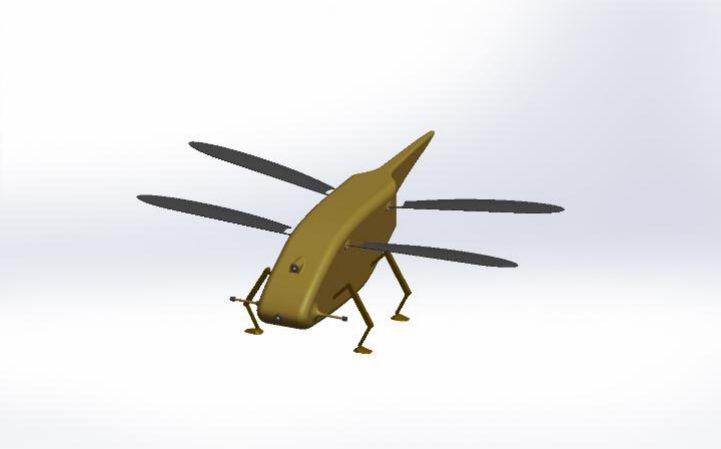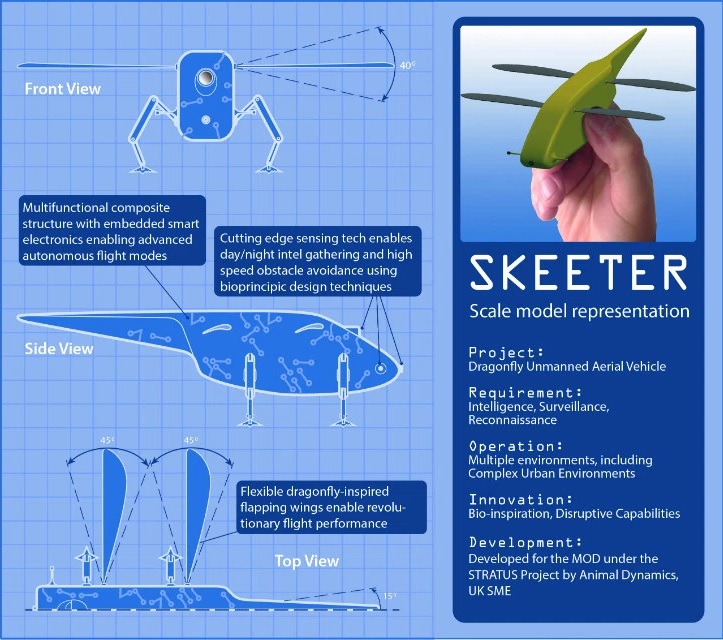Imagine an insect buzzing by your face. Annoying, right? Now equip that insect with the ability to burn holes in other drones and bring down full-size jets. That’s the claim and the goal of the ‘Dragonfly Drone’, a deadly drone that the British army is adding to it’s toolbox when it comes to the War on Terror.
The drone actually acts like an insect. It’s carried by four flapping wings and legs and can fit in the palm of your hand. Flying is no problem for this little beast as it can cut through the air with great agility. The force is enough to allow it get through open windows of buildings and perch itself outside of a window and listen in on secret conversations.

But that’s not all. This Dragonfly Drone (who’s real name is ‘Skeeter’) has a robust detection system allowing it to determine what lies in its path. It can avoid obstacles even at high speeds.
The Dragon Drone claims to take down drones and yes, even aircraft
Perhaps the most terrifying part of the Dragonfly Drone is that it’s deadly. It contains lasers that allow it to burn holes into enemy drones in an effort to damage the electronics and render them useless.
The Dragon Drone also has the ability to approach aircraft (most likely on the ground) and overload light sensors causing the aircraft to malfunction. Imagine a bug taking down a billion dollar fighter jet. Possible?
Britain says yes.

The Dragon Drone is a kit being developed by Britain’s Ministry of Defense as part of an innovation drive on the war on terror. The MoD’s innovation fun has £800m ($1.3B) up for grabs over 10 years to support in development of new weapons.
A new tool in the War on Terror
Defense Secretary Michael Fallon said: “This new approach will help to keep Britain safe while supporting our economy with our brightest brains keeping us ahead of our adversaries.
A mobile robot that can detect chemical weapons is also being worked on, as well as virtual reality helmets to let pilots train while they’re still on the ground.
“Backed by a defense budget that will rise every year until the end of the decade, it will ensure that the UK maintains its military advantage in an increasingly dangerous world.” he says.
